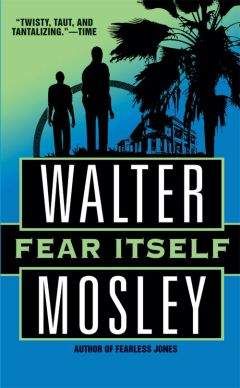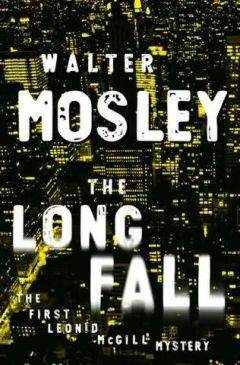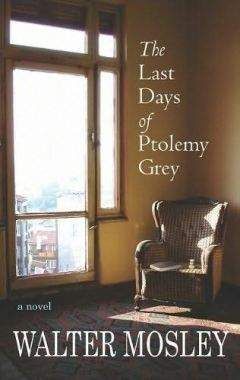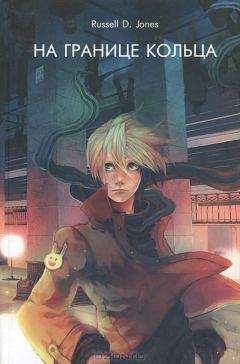Walter Mosley - Fearless Jones
“That’s it?” I asked.
Father Vincent looked in my eyes and saw that he had to give more to be let off the hook.
“Elana got mad ’cause William wouldn’t tell her why we were runnin’ or who was after him.”
“She didn’t know about the accountants?”
Vincent shook his head. “William didn’t trust that girl. He just wanted to be on her good side.”
“Did he stay there?”
“No. Elana took the bond back and left him.”
I realized that Elana had known where Grove was the whole time she was crying in my bookstore.
“Good riddance to bad garbage,” Vincent said. “Everything was okay for a couple’a months. We moved out here, and William kept a low profile. He still did some fencin’, but not so much as before. But then that Leon Douglas, Elana’s old boyfriend, got outta jail. Douglas beat William somethin’ terrible. He beat him so bad that he realized that Elana had to be lyin’ about him havin’ the bond, so they left — leavin’ William to bleed.
“After that, William called the accountants again. He told them that he was in hidin’, that they couldn’t find him, but maybe he could still get their bond.”
“Why he say that?” I asked.
“ ’Cause he was a fool,” Vincent declared. “The only thing he got outta that beatin’ was that the bond must’a been worth somethin’ more than what Elana said. Two days later the accountants sent over the man, and we had a meetin’.”
“What was that about?”
“It was a man named Holderlin,” the minister said. He sat back against a shelf, weak himself from the strain of our bluffs. “He told us that Leon had been working for him to get the bond but that Leon lost the girl, so he needed our help to find her. Holderlin said that he was working for the Jewish government, that money was stole from them by this Tannenbaum guy. He said that the bond was probably one of many, that they were probably printed in sequence. He said one bond would lead to the rest and that there would be a finder’s fee.”
“He said that he worked for Israel?” I asked.
“Yuh.”
“How much did he say it was worth?”
Vincent gave me a suspicious look.
“I heard millions,” I said, trying to head off his misgivings. “But I don’t know exactly.”
“I want outta this, Lockwood. I don’t need to get killed over somethin’ like this.”
I remember thinking that he was giving better advice than when he stood in front of his transient congregation.
“Was this Holderlin a young man?” I asked, adding my description of the man I saw with Latham and Elana out in front of the Pine Grove Hotel.
“No, no. He was in his forties, big dude. Grove’s age, maybe a little more. He had a partner too. I didn’t get a good look at him ’cause he drove the car.”
“Did this Holderlin tell you how you could get in touch with him?”
“No. He got our number, but we never had his.”
“What are you gonna do now?” I asked.
“The congregation needs me now that Brother Grove has passed on,” the pastor said. “They need me more than ever.”
“That may be,” I said. “But I suggest you change your address again, Reverend, and maybe the name of your congregation.”
Father Vincent considered my words as I considered him. He was a killer like Leon Douglas, but he didn’t use his hands. Instead he had used stealth and lies, along with good timing, to manage the murder of his nemesis, William Grove. He was a murderer, but I couldn’t do anything about it. I doubted if any court would convict him. It put a sour taste in my mouth.MM
I swallowed deeply and then left the minister to his God. But I wasn’t breathing easy. Brother Bigelow and two other deacons were waiting for me in the small yard.
“What you doin’ here, man?” Bigelow demanded.
“Reverend Grove had been seeing my cousin.” Lies came out of me like shit from a pig, as my Aunt Calais used to say. “She went missin’ behind all kindsa crazy stories. I wanted to find out where she was.”
“Who’s this cousin?” an unnamed deacon asked.
“Elana Love,” I said. A feeling of triumph snaked down my spine. Let them make the connections, that was the only way out.
“Elana,” another deacon said.
“Yeah,” I said. “She came to me talkin’ ’bout how Grove had stolen her stuff and now her boyfriend out of jail, Leon, was comin’ after them. Now Grove is dead, and I want to know about my cousin. She haven’t called or nuthin’.”
I was trying to keep my breathing from going crazy. I knew that if I showed the panic I felt, they would think I was lying — and if they thought that, they might not let me go.
It seemed like a long time before Bigelow said, “Get the hell outta here.”
They let me go but didn’t stand out of the way. I had to walk around them on the recently watered soggy lawn. But I did so happily.
In the storefront church, the congregation was still mourning the empty coffin. They were drinking wine and eating sandwiches. I half-expected someone else to grab me, to interrogate me, to threaten my life, but no one even noticed. I slipped through the throng, no more remarkable than a shadow.
27
I WAS SWEATING, but it wasn’t hot. My heart was throbbing instead of beating, and my legs couldn’t seem to coordinate to keep a steady stride. When I got in the car my fingers went numb, and I couldn’t seem to hold the key right. It took me four or five tries before I realized that I was trying to fit my new apartment key into the ignition.
I started the car and drove off. Three blocks away I pulled to the curb. There I took in great gulps of air, trying to bring my spirit back into alignment with my body — because that’s how it felt, as if my soul were somehow trying to flee the flesh, as if I had been so close to death so often in the past few days that the ghost was ready to bolt. That’s how it goes with me. I face danger and survive it, acting just fine, but as soon as it’s over and I’m alone, I break down.
There was a World-Wide gas station just up the block. There I found a phone booth.
“Hello,” a woman answered flatly.
“Charlotte?”
“Hold on.”
The phone rumbled from being set down on a hard surface.
“Hello?” a much sweeter voice asked.
“Charlotte?”
“Who is this?”
“It’s Paris.”
“Oh, hi,” she said. “I thought that number you gave me was just sumpin’ you thought up when I called it. It sounded like a law office or sumpin’.”
“Can we get some coffee or something?” I asked.
“Yeah. Why’ont you come on ovah?” She gave me her address.
CHARLOTTE’S APARTMENT COMPLEX was a series of big brick-and-plaster affairs on 109. The buildings were long and thin looking, like army barracks, separated by green lawns. She was in building K on the third floor.
The hallway was lit by the setting sun through a window at the far end. The walls were white and pretty except for a mark here and there. You could tell that the place was new. I hoped that it would maintain its beauty, but I had my doubts. The suffering of a people often showed up in their material surroundings. Like a broken heart leaving a forlorn lover a physical mess, the weight of racism and poverty often made colored neighborhoods downtrodden and marred.
Charlotte answered the door. She was wearing a close-fitting but not tight black dress with no hose and no makeup.
“Hi.” She smiled and looked me in the eye, but then she saw something and asked, “What’s wrong?”
“Can I come in?”
She stepped back, and I stumbled a little crossing the threshold. There was a low couch with chrome legs and orange vinyl cushions. Beyond that was a glass door that led out onto a tiny landing. The sun was shining in on a large rubber plant in a terra-cotta pot. The living room and kitchen were one. But the couch was placed so that it marked the line between the two.
“This is very modern,” I said, sitting down.
Charlotte beamed with pleasure.
There was a console record player/radio across from the couch. She lifted the reddish brown lid and started the stack of records. I remember the first song was by Ella Fitzgerald, but I forget the tune.
“You want that coffee?” she asked.
“Where’s your roommate?”
“She went to see her sister. I’m’a call her later on.”
Charlotte lit on the couch next to me.
“I didn’t think you’d call,” she said.
“I shouldn’t have.”
“Why not?”
“’Cause I’m in trouble,” I said. “ ’Cause I’m in trouble, and I hardly know you to come over here and burden you.”
“I’m from outside Galveston,” she said. “Where you from?”
“Near New Iberia.”
“Where’s that?”
“Louisiana.”
She put a hand on my knee, “You see?”
“See what?”
“We’re both from the South. People from the South is just nicer. We don’t get all cold and push people away when they in need.”
“How long you been here?” I asked.
“Where?” She leaned forward and I slid a little in her direction.
“In L.A.?”
“Two months.”
I kissed her chin right in the middle of that scar. She shuddered and moved her hand up on my erection. She didn’t gasp or make any declaration about my size. That was fine by me. I didn’t want any big expectations. I just wanted someone close and caring.
“Bite it,” she said.
I knew what she meant and nipped her chin and lip.
“Li’l harder, baby,” she said and her hand tightened on my erection to show me how much harder she meant.
I groaned and bit harder.
“Oh, that’s it,” she whispered. “I wanted that ever since you said it. It’s like you caught me, just sayin’ you’d bite my lip.”
She shuddered again, and I grabbed her head with both hands to steady it as I ran my tongue slowly from her chin up across her lip. I spent many minutes on that scar. It drove her wild. She used those moments to take off our clothes and lead us to the bed.
Again it was a new kind of lovemaking for me. Usually there was a game I played with women. They adored my big thing and ignored my skinny chest. I pretended that I was a wild animal, furious and feral in my passion. It led all too quickly to something explosive and not quite real. But with Charlotte it was different. There were some explosions, but at other times there was a settling in. Like when we lay on our sides, me deep inside her, facing each other.
“A man cut me on the face, and when it healed I headed for L.A.,” she said in a strained whisper.
I stroked her cheek in reply.
“Would you do somethin’ like that?” she asked.
“Neither,” I said.
Her face framed the question that a moment of passion would not allow into words.
“Not cut you or run,” I said.
She twisted my ear pretty hard, and I came so violently that I lost consciousness for a while.
I awoke to the smell of coffee, disoriented because I didn’t know where I was. I had to look around the bare room a couple of times before I remembered Charlotte. The floor was finished pine with no rug. The open closet was a door-size indentation with three dresses hanging on wire hangers. The single bed I was on was the only furniture in the room. I realized that the furniture in the living room must belong to the flat-voiced roommate; that Charlotte had nothing; that she was just a refugee from the violence of her recent past.
I tried to get up, but the bed was too comfortable. The pillow had the sweet smell of some kind of hair product, the sheets were clean. My bed back at Fontanelle’s was a six-year-old’s smelly mattress with no sheet on a gritty, pitted floor. I had the urge to get married right then. I could get married to Charlotte, get a job with the city, move out toward Compton — maybe even change my name.
“Paris, you ’wake?” She was standing at the door.
“Uh,” I admitted.
“I got coffee on the deck.”
IT WAS CROWDED on the deck, and the kitchen chairs we used rocked a little on the metal grating that stood for a floor. But the early evening was pretty, and Charlotte’s conversation was just what I needed.
“What kinda trouble you in?” she asked after her second cup of coffee.
“I don’t really know,” I said.
“How could you not know? Is somebody after you?”
“Maybe. They have been. One or two. One of ’em burnt down my little bookstore over on Eighty-nine and Central.”
“You worked there?”
“I owned it,” I said with faded pride.
“I used to go by there. I mean when it wasn’t burned. I always wanted to go in, but I was scared.”
“Scared’a what?”
“I don’t know. Things out here scare me. People don’t act normal. It’s like you gotta know some kinda secret handshake or sumpin’.”
“You come up here to get away from that man cut you,” I said, only partly as a question.
“Not only that,” Charlotte said. “I wanna be a cook too. Not just a cook that make stuff but a chef. I wanna own my own restaurant. You know my mama was the best cook in our whole town, and I learned from her. Back where I come from, you could only cook for a house fulla dirty kids in a backwood shack, or up in some rich white peoples’ houses. I want my own place.”
“You know I got to go soon, Charlotte.”
“Say that again.”
“You know —”
“No, not that, just my name.”
“Charlotte.”
She smiled and got up to kiss me.
“You was just what I needed, baby,” she said.
28
WHEN I GOT TO the hospital it was almost eight. I left Charlotte with the promise to call in a few days; just that little pledge made me feel that I might be alive and free after this mess was over.
The hospital room smelled sour, like a mound of dead skin.
Fearless was sitting at Sol’s bedside speaking in low tones. That made me happy because it meant that Sol was listening and talking.
“They brought me here to die,” a voice to my left said.
I turned to see an ancient white man sitting up in a bed. He was so small that he seemed like an infant allowed to sleep in a grown-up bed. The odor was coming from him.
“What?”
“They brought me here to die,” he said again. “The doctors and the lawyers and Marjorie.”
“Are you sick?” I asked.
He raised a skeletal hand and waved me to his bedside.
I glanced at Fearless, who had stopped talking for a moment to look in the direction of the voices. He saw me and then turned back to continue his conversation with Sol.




